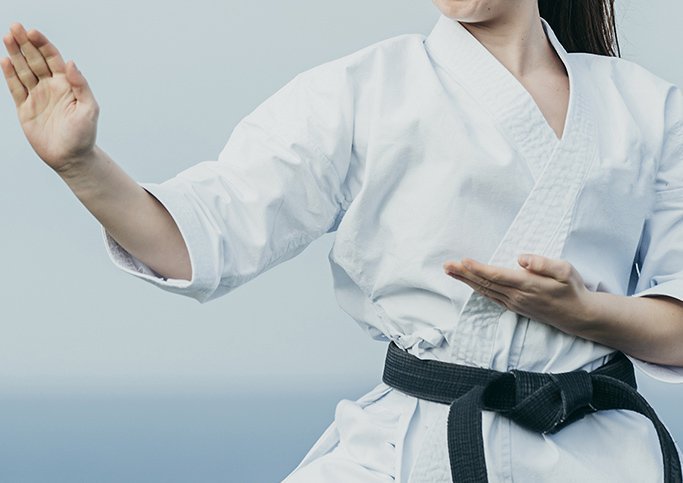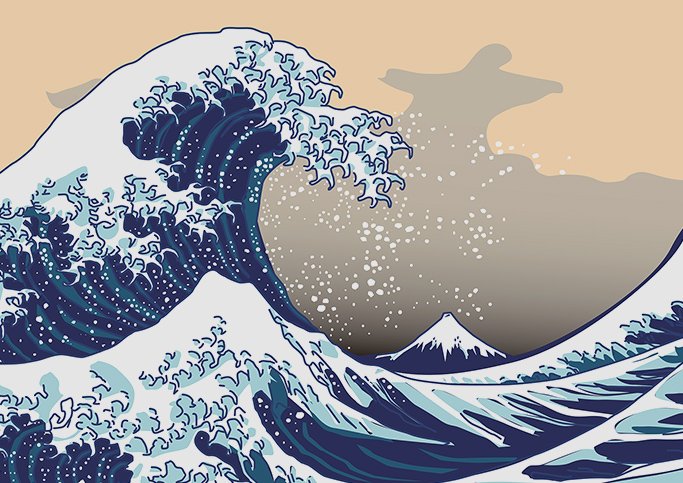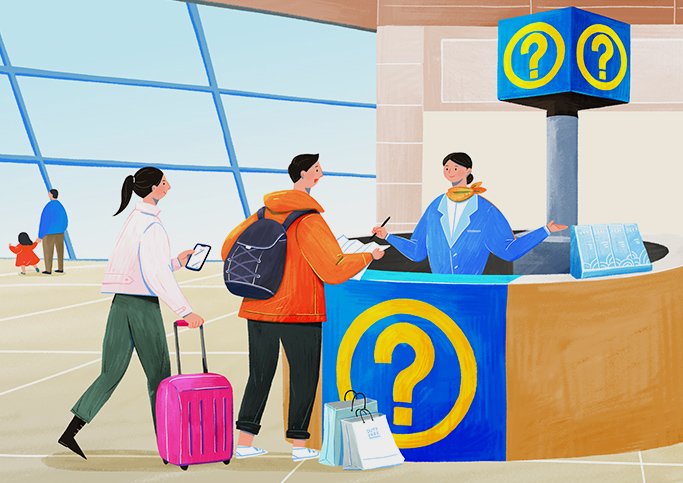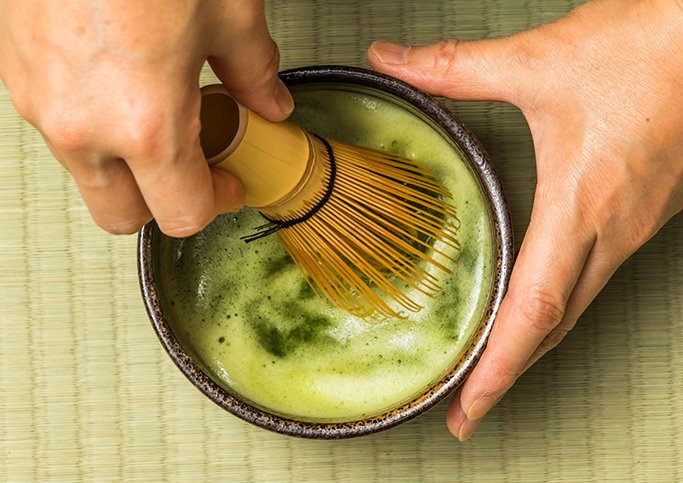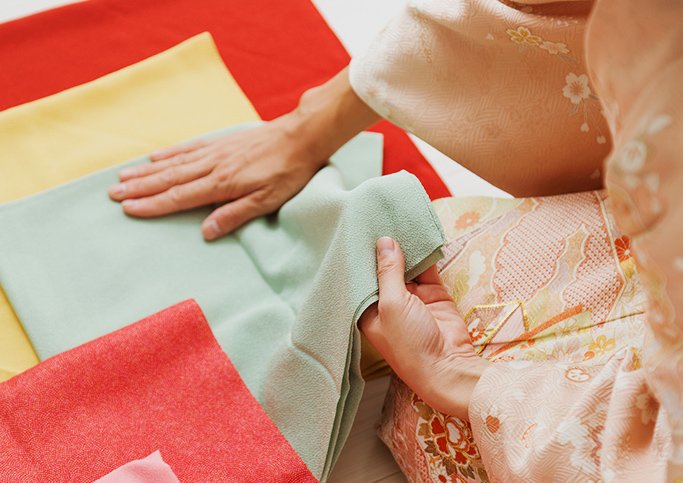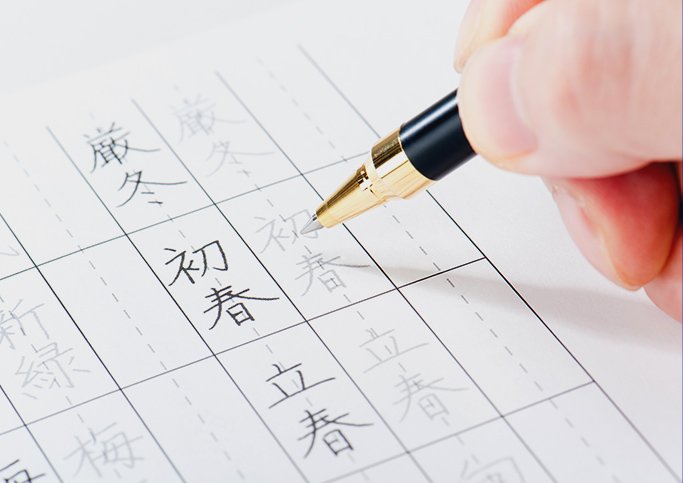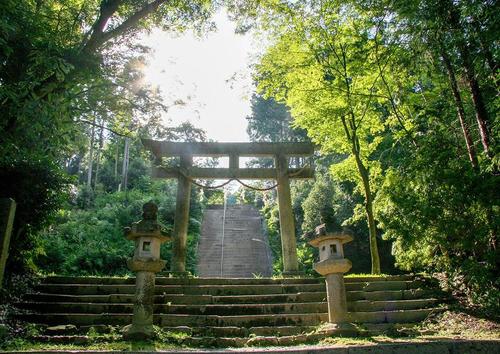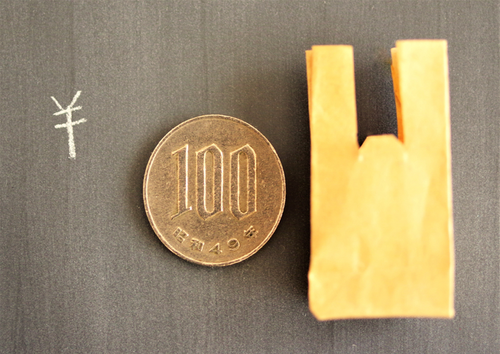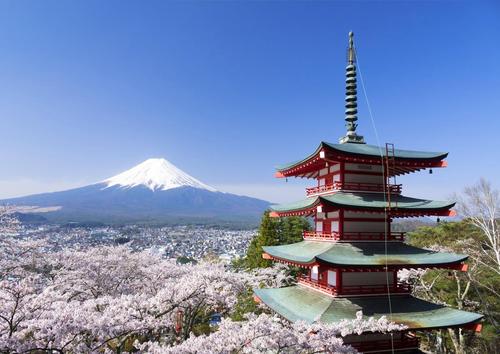
difference
What are the characteristics of Japanese culture? Explain the unique view of nature and the difference from Western culture!
11/27/2020
Japan is an island country surrounded by the sea and is rich in nature. One of the characteristics of Japanese culture, which is an island country, is that we do not go against nature and value everything in the flow of nature.
On the other hand, in Western culture, culture has been built up with the idea that "death" that occurs in the natural flow is regenerated.
In this article, I will explain the characteristics of Japanese culture that is faithful to such a view of nature and the differences between Western cultures, so let's learn the knowledge of Japanese culture that is forgotten in modern society.
Japanese culture that has achieved its own development while being close to nature
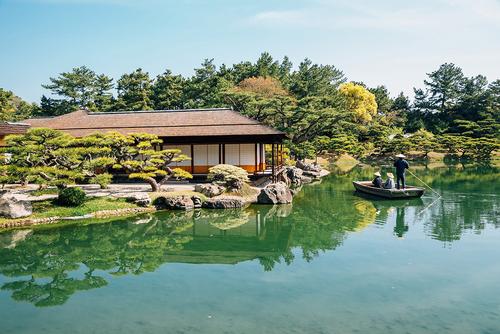
The origin of Japanese culture dates back to the Jomon period, and the Japanese ancestors at that time lived in nature and never went against it. The reason is that the power of nature is much higher than that of human beings, and it is said to be the idea of "sky" which is also a Buddhist teaching, and it has built Japanese culture as an animal as it is against death.
On the other hand, in the West, the human soul has built a culture that seeks an eternal body. Therefore, there is an idea to regenerate death by creating a mummy or a huge stone graveyard.
In the first place, Japanese culture is thought to have been born because the Japanese insisted that "we are Japanese" to other countries, and it has permeated mainly from the end of the Edo period to the Meiji period in Japan.
At that time, what is Japanese culture? It was Yukichi Fukuzawa who clarified that.
Satoshi Fukuzawa traveled to Europe to participate in exhibitions in the United States and the Netherlands for academic research during the Edo period, when Japan's isolation was over, and is one of the few Japanese to travel to Europe. There, Yukichi Fukuzawa is stunned to see what he actually saw in Europe (Netherlands). At that time, because of the Edo period, Japan was lined with Edo castles and Japanese houses, but in the Netherlands, I couldn't hide my surprise from the reality of glass-walled buildings and newspapers that have published more than 300,000 copies.
Then, in order to protect and inherit the culture unique to Japan, I thought that it was necessary to disseminate what is recognized by Western countries.
After that, Yukichi Fukuzawa founded Keio University immediately after returning to Japan and published many books to spread the knowledge he had actually experienced in politics during the Meiji era and abroad.
Because I thought that I had to preserve the traditional Japanese art that existed at that time, tea ceremony, Japanese dance, flower arrangement, Noh, pottery, etc. still remain in modern society, and they have characteristics different from Western culture.
Japanese culture and Western culture have completely different characteristics
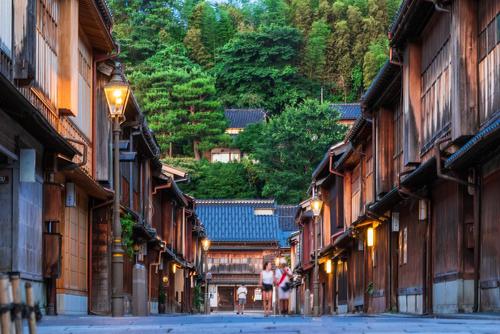
Japanese culture and Western culture have completely different characteristics.
In the Edo period, the books of Yukichi Fukuzawa created the idea of Japanese culture that remains in the present age, and there are still many Japanese arts that are still popular. But what about Western culture? Below, I will explain the differences between Japanese culture and Western culture.
Japanese culture that has achieved its own development while being influenced by other countries
Japan is a country that has accepted many cultures and technologies from neighboring countries such as China and South Korea since the Jomon period. But what is behind the unique development of Japanese culture despite being strongly influenced?
The reason may be that many ethnic groups coexisted in the vast area of the Japanese archipelago, and the ethnic groups living in the sea, mountains, and flatlands have given wisdom to each other.
Japan is also a master who immediately accepts foreign cultures. However, the culture was adopted or not incorporated by the wisdom of the Japanese people and each ethnic group, or it was improved for their own good.
As a result, although various ethnic groups from Hokkaido to Okinawa were passive in accepting the cultures of other countries, Japan has the strength to live in harmony and not lose itself no matter how much influence from other countries. It seems that Japanese culture, which is connected to the present age, has been preserved since ancient times.
[If you read the article, may you know the meaning of this KARUTA? ]
Differences in characteristics between Western culture, which is a continental culture, and Japanese culture, which is an island country
Western culture, which is also a continental culture, and Japanese culture, which is an island country, differ not only in general customs and eating habits, but also in various characteristics such as religion and thinking patterns.
Below, we will explain what the differences are.
·religion
The current religion of Japan is Buddhism, which originated in ancient India and was introduced to Japan via China and Korea. However, with the addition of Japan's unique ideas to that Buddhism, it has changed to a religion that "feels" the power of God. On the other hand, in the religion of Western culture, the teaching of Jesus Christ is regarded as a religion that "believes", and there is a big difference between Japanese culture and Western culture.
・ Architecture
In Japanese architecture, wood is mainly used, and lightweight materials are strengthened by technology. On the other hand, in Western culture, by using a lot of stones and metals, the building is heavier but stronger than wooden.
・ Habit
Japan is also an island country, and because it was isolated, it is a race that rarely communicates with. However, Western culture has the characteristic of being able to actively interact with anyone, such as shaking hands and hugging.
・ Eating habits
Since all around Japan's territory is the sea, the mainstream food culture is to eat a lot of fish, grow rice and vegetables through agriculture, and be self-sufficient. On the other hand, the Western food culture is a food culture that mainly eats wheat and meat and eats beef such as bread and livestock.
・ Thinking pattern
The Japanese, who are Asians, are a race that values harmony and thinks in a highly cooperative manner. On the other hand, Western thinking is a race of thinking that is curious and is good at transmitting while seeking to know all the essences.
・ How to face nature
There are many earthquakes and tsunamis in Japan, and it is a race that tries to coexist with the threat of nature, which can be said to be the essence of Japanese culture. On the other hand, in the West, the way of thinking is different from that in Japan because humans face and control the threats that occur naturally.
[Do you care about Japan? Would you like to learn Japanese together? ]
Summary
The character and behavior of the Japanese people are probably influenced by traditional Japanese culture even today. In Japan, which has few opportunities to interact with other countries among the island nations, all cultures such as customs, eating habits, and thinking patterns have been developed independently.
The fact that culture has been passed down to the present day in Japan is probably the result of Yukichi Fukuzawa's research during the Edo period.
If Yukichi Fukuzawa had not thought about protecting the arts, there would have been no traditional Japanese culture until the present day. I think that Japanese culture and art, which are still inherited without fading, must be inherited by the Japanese living in the present for the future.
I would like many foreigners to know the good old culture of Japan.
This article is a partial re-edit of the article published in Nihongo Biyori by KARUTA.
Unauthorized reproduction or use of the contents, text, images, illustrations, etc. of this site is strictly prohibited.
CATEGORIES
FEATURED TAGS
RECOMMENDATION
-
 報BUSINESS TERMS
報BUSINESS TERMSWhat is ”Ho-Ren-So”, one of the basic manners when working in Japan?
10/30/2020
-
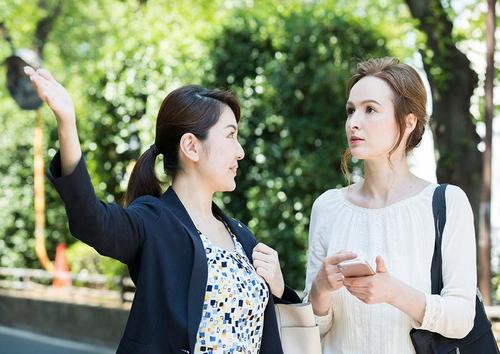 伝WORDS & GRAMMAR
伝WORDS & GRAMMARWhat is easy Japanese?
10/30/2020
-
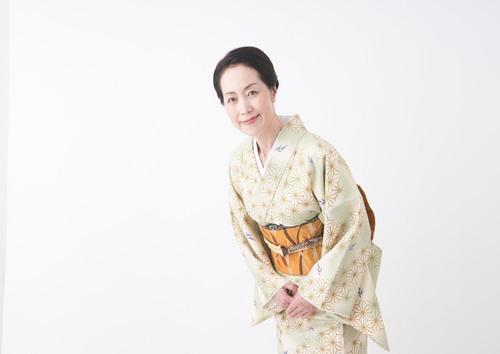 礼MANNERS
礼MANNERSJapanese greeting customs and origins. What are the greetings from other countries?
10/30/2020
-
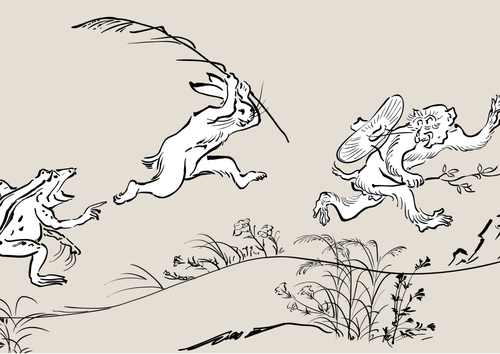 戯COMIC & GAME
戯COMIC & GAMEThe roots of animation and manga? Introducing bird and beast caricatures
10/30/2020
-
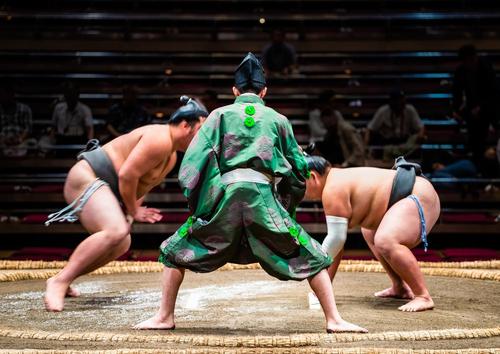 戦SPORTS
戦SPORTSThe history of sumo goes back to the mythical world! ?? Transition from myth to modern times
10/30/2020
LET’S PLAY
KARUTA!
Do you know the meaning of this...
NEXT...
FURTHER EXPLORATION
INTERESTED
IN JAPAN?
WHY DON’T YOU
LEARN JAPANESE WITH US?
START LEARNING
JAPANESE
WITH HUMAN ACADEMY!
ONE OF
THE MOST POPULAR
JAPANESE
LANGUAGE SCHOOLS
JAPANESE
LANGUAGE SCHOOL
OFFERING EXCELLENT
DETAILED LESSONS

ONLINE SCHOOL
- Learn with your classmates from all over the world
- Variety of Courses for All Needs
- FREE Trial Lesson available

TOKYO, OSAKA
- Offer the Best Curriculum for You
- Make New Japanese Learning Friends
- Many Opportunities to Practice Japanese
MAKE FURTHER
STEPS
WITH HUMAN ACADEMY!
ONE OF
THE MOST POPULAR
JAPANESE
LANGUAGE SCHOOLS
JAPANESE
LANGUAGE SCHOOL
PRODUCING MANY
JLPT N1 CERTIFIED
STUDENTS!

ONLINE SCHOOL
- Learn with your classmates from all over the world
- Variety of Courses for All Needs
- FREE Trial Lesson available

TOKYO, OSAKA
- Support Your Higher Goal of Japanese Learning
- Perfect Environment for Japanese Learners
- Learn with Your New Japanese Study Mates




